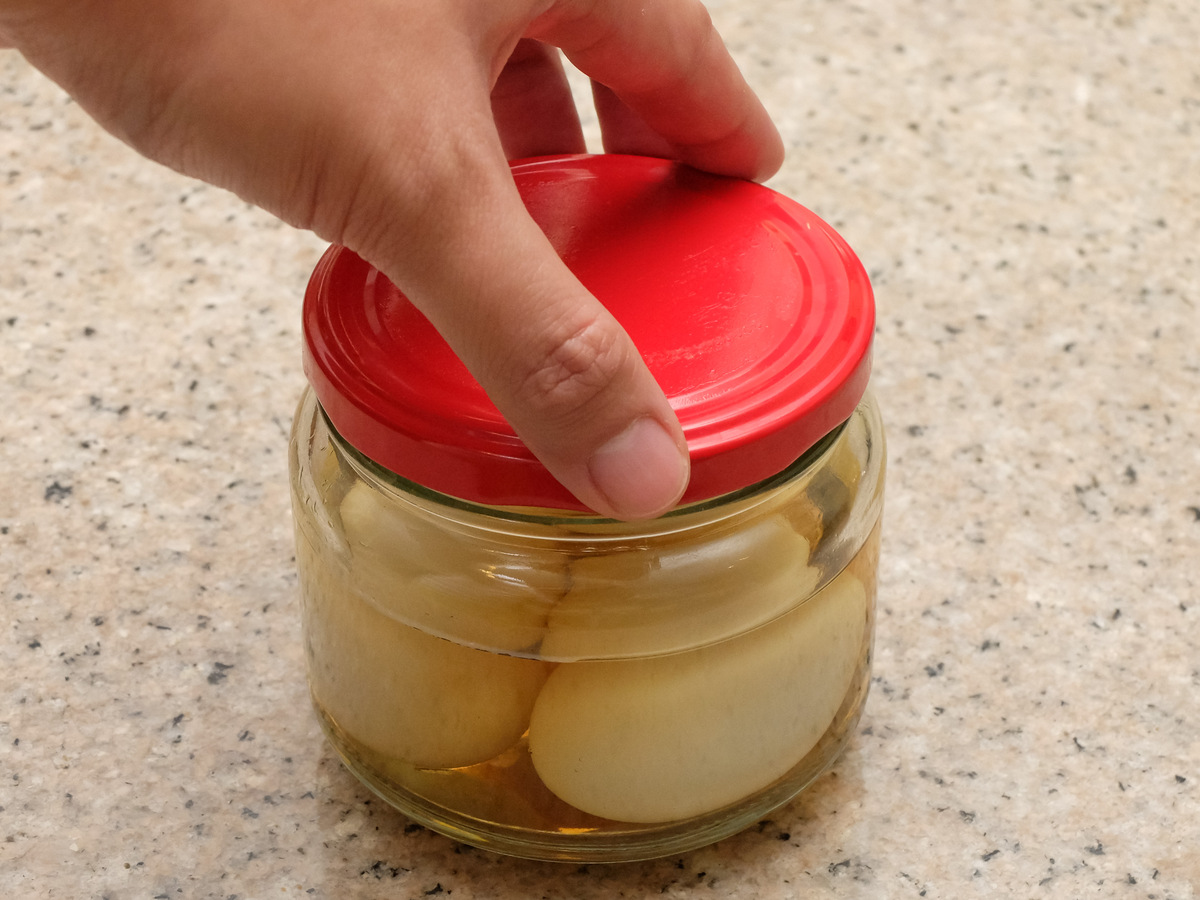

Articles
How To Store Hard-Boiled Eggs
Modified: February 23, 2024
Learn the best methods for storing hard-boiled eggs with our informative articles. Keep your eggs fresh for longer with these expert tips.
(Many of the links in this article redirect to a specific reviewed product. Your purchase of these products through affiliate links helps to generate commission for Storables.com, at no extra cost. Learn more)
Introduction
Hard-boiled eggs are a versatile and nutritious food choice. Whether you enjoy them as a quick and easy protein-packed snack, or use them to add protein to salads or sandwiches, properly storing hard-boiled eggs is essential to maintain their freshness and prevent spoilage.
In this article, we will explore the various methods for storing hard-boiled eggs, both with the shell on and with the shell off. We will discuss the reasons why you might want to store hard-boiled eggs, and provide step-by-step instructions for each storage method.
By following these guidelines, you can extend the shelf life of your hard-boiled eggs and ensure that they remain safe to consume. So let’s get started with understanding why storing hard-boiled eggs correctly is important.
Key Takeaways:
- Properly storing hard-boiled eggs is essential for maintaining freshness and flavor. Whether refrigerating, pickling, freezing, or water glassing, there are versatile methods to extend shelf life and enjoy this nutritious ingredient.
- Storing hard-boiled eggs, whether with the shell on or off, offers convenience and versatility for meal prep and snacking. From pickling to freezing, explore various methods to preserve and enjoy this nutritious ingredient.
Read more: How To Store Peeled Hard Boiled Eggs
Why Store Hard-Boiled Eggs?
There are several reasons why you might find yourself needing to store hard-boiled eggs. Here are a few common scenarios:
- Meal Prepping: If you like to plan your meals in advance, hard-boiled eggs can be a convenient and healthy addition to your meal prep routine. By storing them properly, you can have ready-to-eat protein on hand to add to salads, wraps, or enjoy as a snack throughout the week.
- Leftover Eggs: Perhaps you made a large batch of hard-boiled eggs for a party or gathering, and now you have leftovers. Storing them properly will help you keep them fresh and prevent waste.
- Traveling or Picnics: If you’re planning a picnic or going on a road trip, you may want to bring hard-boiled eggs along for a protein-rich snack. Knowing how to store them correctly will ensure they remain safe and delicious during your outdoor excursions.
- Seasonal Surplus: If you have your own flock of hens or live near a farm, you may find yourself with an abundance of fresh eggs during certain seasons. Knowing how to store hard-boiled eggs can help you preserve them and enjoy them later when the egg supply is scarce.
Now that we understand the reasons behind storing hard-boiled eggs, let’s dive into the different methods you can use to keep them fresh and flavorful.
Choosing and Preparing Eggs
When it comes to storing hard-boiled eggs, it’s important to start with fresh and properly cooked eggs. Here are a few tips on choosing and preparing eggs for storage:
1. Freshness: Use fresh eggs for best results. Look for eggs that are within a week of the packing date. Fresh eggs have a lower risk of bacterial contamination and will generally have better texture and taste.
2. Cooking: Start by cooking the eggs properly. Place uncooked eggs in a pot and cover them with cold water. Bring the water to a boil over medium heat, then remove the pot from the heat and let the eggs sit in the hot water for about 9-12 minutes, depending on the desired level of doneness.
3. Cooling: Once the eggs are cooked, it’s important to cool them down quickly to prevent overcooking and to facilitate easier peeling. Immediately transfer the eggs to a bowl of ice water and let them sit for 5-10 minutes. This will stop the cooking process and make the eggs easier to peel.
4. Peeling: Gently tap the cooled eggs on a hard surface to crack the shell, then roll them between your hands to loosen the shell all around. Start peeling from the wider end of the egg, where the air pocket is located. Running the eggs under cold water as you peel can also help remove any stubborn shell pieces.
By following these tips and properly preparing your eggs, you’ll set a solid foundation for successful storage. Now let’s explore the different methods of storing hard-boiled eggs, whether with the shell on or with the shell off.
Shell-On Storage Methods
Storing hard-boiled eggs with the shell on provides a protective barrier that helps maintain their freshness and flavor. Here are some popular shell-on storage methods:
Method 1: Refrigerator Storage
One of the simplest and most common ways to store hard-boiled eggs is in the refrigerator. After allowing the cooked eggs to cool, keep them in an airtight container or in their shell. It’s best to place them in the refrigerator door or on a shelf, away from strong-smelling foods. Hard-boiled eggs stored this way can stay fresh for up to one week.
Method 2: Pickling
Another option for storing hard-boiled eggs is to pickle them. Pickled eggs are not only delicious but also have a longer shelf life. To pickle eggs, place the peeled eggs in a jar with a mixture of vinegar, water, and spices like cloves, peppercorns, or garlic. Store the jar in the refrigerator and allow the flavors to develop for at least 24 hours before enjoying. Pickled eggs can be stored for several weeks.
Method 3: Freezing
If you find yourself with an abundance of hard-boiled eggs, freezing them can be a great solution. Start by removing the shell and placing the cooked eggs in a freezer-safe container or zip-top bag. For best results, you can separate the yolks from the whites and store them separately. Frozen hard-boiled eggs can be kept for up to three months. Remember to thaw them in the refrigerator before using.
Method 4: Water Glassing
Water glassing is an age-old method of preserving eggs for an extended period. To do this, dissolve 9 parts water glass (sodium silicate) in 1 part boiled, cooled water. Place the hard-boiled eggs, shell-on, in a large glass or ceramic container and pour the water glass solution over them. Make sure the eggs are fully submerged. Store the container in a cool, dark place like a cellar or basement. Water glassing can help preserve eggs for up to several months.
These shell-on storage methods can help you extend the shelf life of your hard-boiled eggs and ensure they remain fresh and safe to eat. However, if you prefer to store peeled eggs for convenience, there are methods for that as well, which we will discuss next.
Method 1: Refrigerator Storage
Refrigerator storage is one of the most common and convenient methods for storing hard-boiled eggs. Follow these steps to properly store your hard-boiled eggs in the refrigerator:
- Cool the Eggs: After boiling the eggs, allow them to cool completely. You can place them in a bowl of ice water or let them sit at room temperature until they are cool to the touch. Cooling the eggs helps prevent them from spoiling and makes them easier to handle.
- Keep the Shells On: For refrigerator storage, it’s best to keep the shells on the hard-boiled eggs. The shell acts as a protective barrier, helping to maintain the freshness and flavor of the eggs. If any shells are cracked or damaged, it’s best to use those eggs immediately rather than storing them.
- Choose an Airtight Container: Place the hard-boiled eggs in an airtight container, such as a glass or plastic container with a tight-fitting lid. You can also use resealable plastic bags or wrap each egg individually with plastic wrap. The goal is to protect the eggs from absorbing odors and moisture from the refrigerator.
- Label and Date: If you have multiple batches of hard-boiled eggs or plan to store them for a longer period, it’s a good idea to label the container or bag with the date. This will help you keep track of their freshness and know when it’s time to use or discard them.
- Store in the Refrigerator: Place the container of hard-boiled eggs in the refrigerator. It’s recommended to store them on a shelf rather than in the refrigerator door, as the temperature on the door tends to fluctuate more. Make sure not to place the eggs near strong-smelling foods, as they can absorb odors.
- Storage Duration: When stored properly in the refrigerator, hard-boiled eggs can stay fresh for up to one week. It’s best to consume them within this time frame to ensure their quality and safety.
By following these steps, you can enjoy the convenience of having hard-boiled eggs readily available in your refrigerator. Whether you want to enjoy them as a quick snack, add them to salads, or use them to prepare delicious recipes, properly stored hard-boiled eggs will be a versatile addition to your meals.
Read more: How To Store Hard Boiled Eggs Peeled
Method 2: Pickling
Pickling hard-boiled eggs is a delicious and flavorful way to store them for a longer period. The process of pickling adds tanginess and unique flavors to the eggs. Here’s how to pickle hard-boiled eggs:
- Peel the Eggs: Start by peeling the hard-boiled eggs. Gently tap each egg on a hard surface to crack the shell, then roll it between your hands to loosen the shell all around. Begin peeling from the wider end of the egg, where the air pocket is located. Rinse the peeled eggs under cold water to remove any stubborn shell pieces.
- Prepare the Pickling Liquid: In a saucepan, combine equal parts vinegar and water. You can use white vinegar, apple cider vinegar, or any other vinegar of your choice. Add spices and seasonings for flavor, such as cloves, peppercorns, garlic, dill, or red pepper flakes. Bring the mixture to a boil, then reduce the heat and let it simmer for a few minutes to allow the flavors to meld together.
- Let the Brine Cool: Remove the pickling liquid from the heat and let it cool down to room temperature. It’s important for the brine to be completely cool before pouring it over the eggs, as hot liquid can cause the eggs to overcook.
- Place Eggs in a Jar: Transfer the peeled eggs to a clean, sterilized jar. You can choose the size of the jar based on the number of eggs you have and the desired amount of pickled eggs you want. Make sure the jar has a tight-fitting lid.
- Add the Pickling Liquid: Pour the cooled pickling liquid over the eggs in the jar, ensuring that the eggs are fully submerged. If needed, weigh down the eggs with a small plate or a clean, food-safe object to keep them submerged.
- Refrigerate and Allow to Pickle: Seal the jar tightly and place it in the refrigerator. Let the eggs pickle for at least 24 hours, although the longer they sit in the brine, the more flavorful they will become. Pickled eggs can be stored in the refrigerator for several weeks.
Pickled hard-boiled eggs make a delightful and tangy snack on their own, or they can be sliced and used in salads, sandwiches, or as a garnish for various dishes. The pickling process enhances the flavor and extends the shelf life of the eggs, making them a versatile option for long-term storage.
Note: If you come across any signs of spoilage, such as an off odor, unusual texture, or discoloration, discard the pickled eggs immediately, as they may not be safe to consume.
After boiling, cool eggs in an ice bath for easy peeling. Store in the refrigerator in a sealed container to prevent absorption of odors.
Method 3: Freezing
Freezing hard-boiled eggs is a great option if you have a surplus or want to store them for an extended period. Freezing allows you to preserve the eggs while maintaining their texture and taste. Here’s how to freeze hard-boiled eggs:
- Peel the Eggs: Start by peeling the hard-boiled eggs. Gently tap each egg on a hard surface to crack the shell, then roll it between your hands to loosen the shell all around. Begin peeling from the wider end of the egg, where the air pocket is located. Rinse the peeled eggs under cold water to remove any stubborn shell pieces.
- Decide Whole or Separated: Determine whether you want to freeze the eggs whole or separate the yolks from the whites. Freezing them separately can be useful if you plan on using them for different recipes. If freezing whole, skip to the next step. If separating, gently remove the yolks from the whites and place each component in separate freezer-safe containers.
- Prepare Freezer-Safe Containers: Select freezer-safe containers or zip-top bags for storage. Ensure the containers are airtight and will protect the eggs from freezer burn. If using bags, remove excess air before sealing. Label the containers with the date for easy tracking.
- Place Eggs in Containers: For whole eggs, gently place them in the freezer-safe containers or bags. If separated, arrange the yolks or whites in a single layer to prevent them from sticking together. Leave a little space at the top of the container or bag to account for expansion during freezing.
- Freeze and Store: Seal the containers tightly and place them in the freezer. Make sure they are on a flat surface so that the eggs freeze evenly. Frozen hard-boiled eggs can be stored for up to three months.
- Thawing and Usage: When you’re ready to use the frozen hard-boiled eggs, transfer them to the refrigerator and allow them to thaw overnight. Once thawed, you can use them as you would fresh hard-boiled eggs. However, note that the texture of the eggs may change slightly after freezing, so they might be best suited for recipes rather than eating on their own.
Freezing hard-boiled eggs is a convenient way to have them on hand for future use. Whether you plan to use them for salads, deviled eggs, or as an ingredient in various dishes, properly frozen eggs can be a time-saving option. Just remember to thaw them safely and use them within the recommended timeframe for the best results.
Note: Be cautious when freezing hard-boiled eggs with watery fillings such as mayonnaise, as the consistency may change after freezing and thawing.
Method 4: Water Glassing
Water glassing is an age-old method of preserving hard-boiled eggs for an extended period without the need for refrigeration. This method involves placing the eggs in a water glass solution, which creates a protective coating around them. Follow these steps to water glass hard-boiled eggs:
- Prepare the Water Glass Solution: Start by dissolving water glass, also known as sodium silicate, in boiled, cooled water. The ratio is typically 9 parts water glass to 1 part water. Stir the mixture well to ensure it is thoroughly combined.
- Place Eggs in a Container: Select a large glass or ceramic container with a tight-fitting lid. Gently place the hard-boiled eggs into the container, taking care not to crack or damage them in the process. It’s important to use eggs that have been stored properly and are not already spoiled.
- Pour the Water Glass Solution: Slowly pour the water glass solution over the eggs until they are fully submerged. Ensure that all the eggs are completely covered by the solution. The water glass creates a protective coating around the eggs, extending their shelf life.
- Seal and Store: Secure the lid tightly on the container to create an airtight seal. Store the container in a cool and dark place, such as a cellar or basement, where the temperature remains relatively stable. The eggs should be completely immersed in the water glass solution throughout the storage period.
- Check and Replace Solution: Periodically check the water glass solution to ensure it remains clean and clear. If you notice any cloudiness or signs of spoilage, it’s important to replace the solution immediately. In general, the water glass solution can preserve the eggs for several months.
- Usage and Preparation: When you’re ready to use the water glassed eggs, remove them from the solution and rinse them under cool running water. You may notice that the eggshells have taken on a translucent appearance, but the eggs inside should be perfectly fine to consume.
Water glassing offers a unique and effective way to store hard-boiled eggs for longer periods without the need for refrigeration. It’s ideal for situations where refrigeration is not readily available or if you have an excess supply of eggs to preserve. By following these steps, you can ensure a supply of preserved eggs whenever you need them.
Note: Discard any water glassed eggs that show signs of spoilage, such as off odors, unusual textures, or discoloration, as they may not be safe to consume.
Shell-Off Storage Methods
While storing hard-boiled eggs with the shell on is the most common method, there are situations where you may prefer to remove the shells before storing. Here are two shell-off storage methods to consider:
Method 5: Storing Peeled Eggs in the Fridge
If you prefer to store hard-boiled eggs without their shells for convenience, follow these steps:
- Cool and Peel the Eggs: Allow the hard-boiled eggs to cool completely before peeling them. Gently tap each egg on a hard surface to crack the shell and roll it between your hands to loosen the shell all around. Peel away the shell carefully, making sure to remove any remaining shell fragments.
- Transfer to a Container: Place the peeled eggs in an airtight container, such as a glass or plastic container with a tight-fitting lid. You can also use a resealable plastic bag, removing excess air before sealing. It’s important to protect the peeled eggs from moisture and odors in the refrigerator.
- Label and Date: If you have multiple batches or plan to store the peeled eggs for a significant amount of time, label the container or bag with the date. This will help you track their freshness and ensure they are used within a reasonable timeframe.
- Refrigerate: Place the container or bag of peeled eggs in the refrigerator. It’s best to store them on a shelf rather than in the refrigerator door, as the temperature on the door may fluctuate more. Properly stored peeled eggs can remain fresh for up to three to four days in the refrigerator.
Method 6: Freezing Peeled Eggs
If you have a surplus of peeled hard-boiled eggs and want to store them for a longer period, freezing can be a suitable option:
- Cool and Peel the Eggs: Allow the hard-boiled eggs to cool completely and peel them as described in method 5.
- Place in Freezer-Safe Containers: Arrange the peeled eggs in a single layer in freezer-safe containers. You can use separated yolks and whites if desired. Leave a little space between the eggs and cover the containers with a lid or wrap them tightly with plastic wrap.
- Freeze: Put the containers in the freezer, ensuring that they are on a flat surface. Freezing hard-boiled eggs without their shells can preserve them for up to three months.
- Thawing and Usage: When you’re ready to use the frozen peeled eggs, transfer them to the refrigerator and let them thaw overnight. Once thawed, handle and use them as you would fresh hard-boiled eggs.
Both of these shell-off storage methods provide convenience and flexibility in using hard-boiled eggs. Whether you choose to store them in the refrigerator for a few days or freeze them for longer-term storage, these methods ensure that you’ll have peeled eggs readily available for your culinary needs.
Read more: How To Store Hard Boiled Eggs In Shell
Method 5: Storing Peeled Eggs in the Fridge
If you prefer to store hard-boiled eggs without their shells for convenience, follow these steps to store peeled eggs in the fridge:
- Cool and Peel the Eggs: After boiling the eggs, allow them to cool completely before peeling. You can place them in a bowl of ice water or let them sit at room temperature until they are cool to the touch. Gently tap each egg on a hard surface to crack the shell, then roll it between your hands to loosen the shell all around. Begin peeling from the wider end of the egg, where the air pocket is located. Rinse the peeled eggs under cold water to remove any remaining shell fragments.
- Transfer to a Container: Place the peeled eggs in a container of your choice. You can use a glass or plastic container with a tight-fitting lid or a resealable plastic bag. It’s important to choose an airtight container to protect the peeled eggs from moisture and odors in the refrigerator.
- Label and Date: If you have multiple batches of peeled eggs or if you plan to store them for a longer period, label the container or bag with the date. This will help you keep track of their freshness and ensure they are used within a reasonable timeframe.
- Refrigerate: Place the container or bag of peeled eggs in the refrigerator. It’s best to store them on a shelf rather than in the refrigerator door, as the temperature on the door may fluctuate more. Properly stored peeled eggs can remain fresh for up to three to four days in the refrigerator.
Storing peeled eggs in the fridge provides convenience and easy access to ready-to-eat protein. Whether you want to enjoy them as a quick snack or use them for salads, sandwiches, or recipes, having peeled eggs readily available can save you time in your meal preparation. Just make sure to consume them within the recommended timeframe to ensure their freshness and quality.
Method 6: Freezing Peeled Eggs
If you have a surplus of peeled hard-boiled eggs and want to store them for a longer period, freezing can be a suitable option. Follow these steps to freeze peeled eggs:
- Cool and Peel the Eggs: Allow the hard-boiled eggs to cool completely before peeling. You can speed up the cooling process by placing them in a bowl of ice water. Gently tap each egg on a hard surface to crack the shell, then roll it between your hands to loosen the shell all around. Begin peeling from the wider end of the egg, where the air pocket is located. Rinse the peeled eggs under cold water to remove any remaining shell fragments.
- Separate Yolks and Whites (Optional): If desired, you can separate the yolks from the whites before freezing. This can be useful if you plan to use them for different recipes. Place the yolks and whites in separate freezer-safe containers.
- Prepare Freezer-Safe Containers: Select freezer-safe containers or zip-top bags for storage. Ensure the containers are airtight to prevent freezer burn. If using bags, remove excess air before sealing. Label the containers with the date for easy tracking.
- Place Eggs in Containers: For whole eggs, gently place them in the freezer-safe containers. If using separate containers for yolks and whites, distribute them accordingly. Leave a little space at the top of the container to allow for expansion during freezing.
- Freeze: Seal the containers tightly and place them in the freezer. Make sure they are placed on a flat surface to ensure even freezing. Frozen hard-boiled eggs without shells can be stored for up to three months in the freezer.
- Thawing and Usage: When you’re ready to use the frozen peeled eggs, transfer them to the refrigerator and let them thaw overnight. Once thawed, handle and use them as you would fresh hard-boiled eggs. Keep in mind that the texture of the eggs may change slightly after freezing, so they are best suited for recipes rather than eating on their own.
Freezing peeled eggs provides a convenient way to store them for later use, especially if you have an excess supply. Whether you plan to use them in salads, sandwiches, or as an ingredient in various dishes, properly frozen peeled eggs can be a time-saving option. Just make sure to thaw them safely and use them within the recommended timeframe for the best results.
Note: Be cautious when freezing hard-boiled eggs with watery fillings such as mayonnaise, as the consistency may change after freezing and thawing.
Conclusion
Storing hard-boiled eggs properly is important to maintain their freshness, flavor, and safety. Whether you choose to store them with the shell on or remove the shell for convenience, there are various methods you can employ to extend their shelf life and enjoy them at your leisure.
When storing hard-boiled eggs, start with fresh and properly cooked eggs. Cooling and peeling them correctly is crucial to ensure their quality. If you prefer to store them with the shell on, refrigeration is the most common method. You can also explore other options like pickling or freezing to add unique flavors or preserve them for longer periods. Water glassing offers an alternative way to store eggs without refrigeration.
If you opt to store peeled eggs, keeping them in airtight containers in the refrigerator offers convenience for quick snacking or meal prep. Freezing peeled eggs is ideal for long-term storage, providing you with a supply of ready-to-use eggs even when fresh ones are not readily available.
Remember to label your containers and keep track of the storage dates to ensure that you use the eggs within their recommended freshness periods. Proper storage and handling are crucial to maintain the quality and safety of the eggs.
By following these storage methods, you can enjoy the versatility of hard-boiled eggs for a variety of culinary applications. Whether you use them as standalone snacks, add them to salads or sandwiches, or include them in your favorite recipes, properly stored hard-boiled eggs will be a convenient and nutritious addition to your meals.
So, go ahead and explore the different methods of storing hard-boiled eggs to make the most out of this delicious and versatile ingredient!
Frequently Asked Questions about How To Store Hard-Boiled Eggs
Was this page helpful?
At Storables.com, we guarantee accurate and reliable information. Our content, validated by Expert Board Contributors, is crafted following stringent Editorial Policies. We're committed to providing you with well-researched, expert-backed insights for all your informational needs.

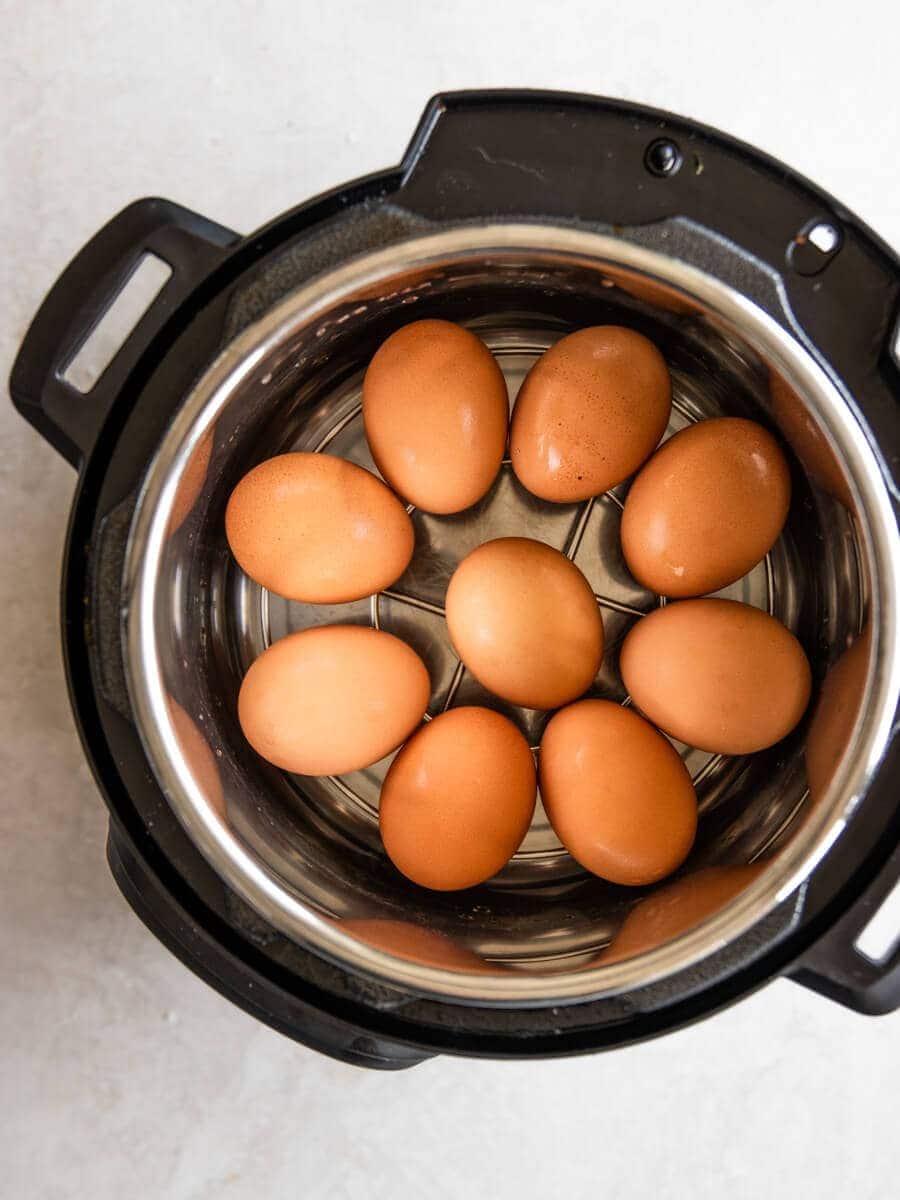

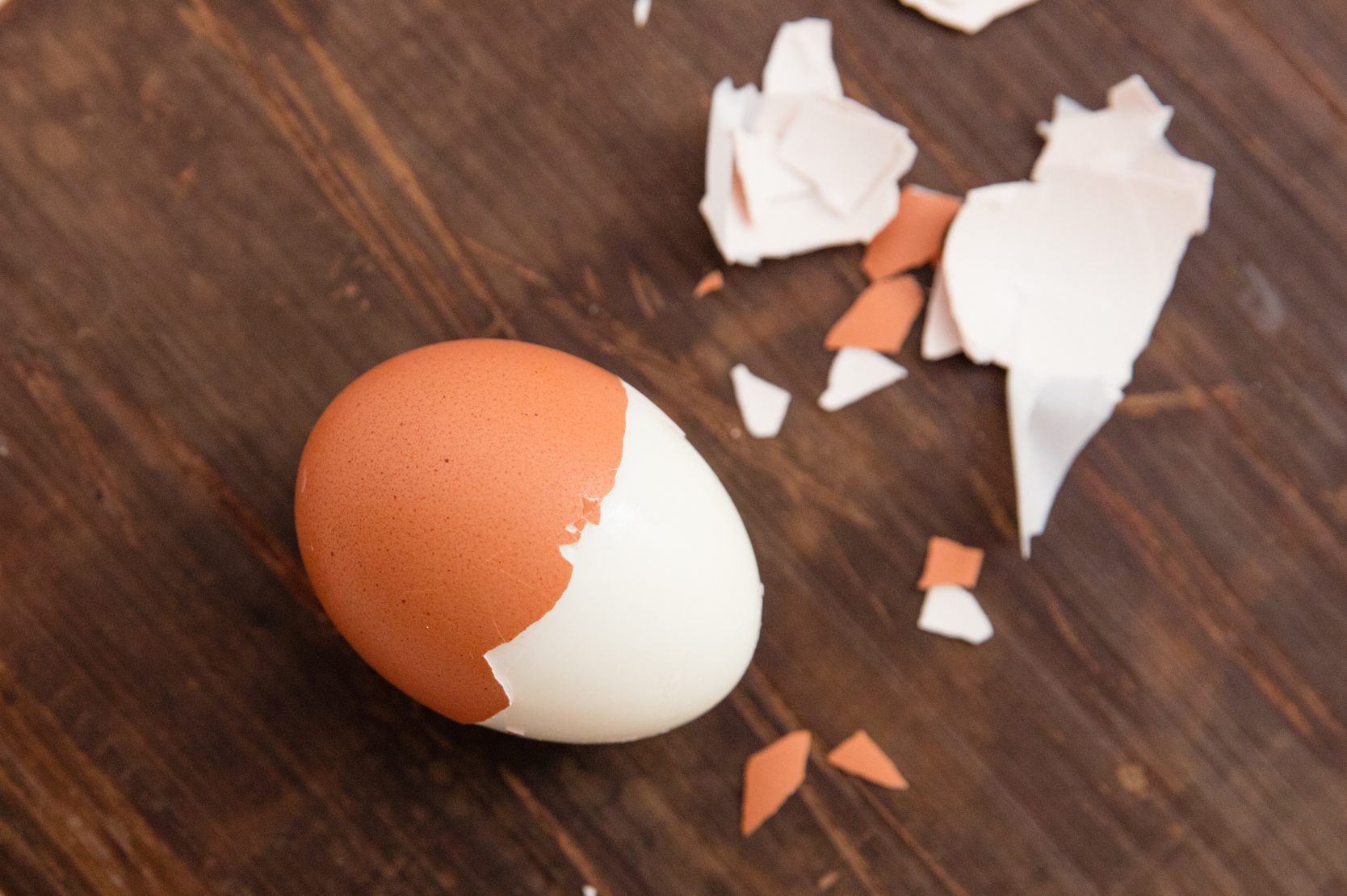
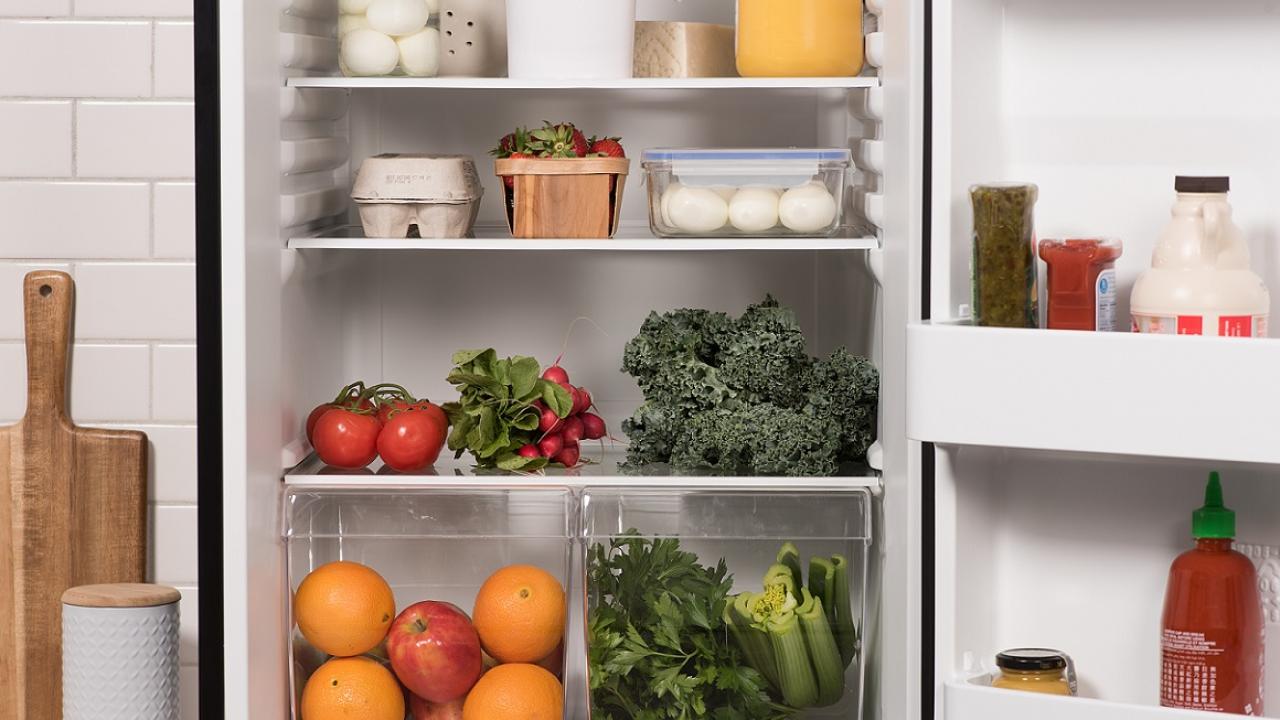

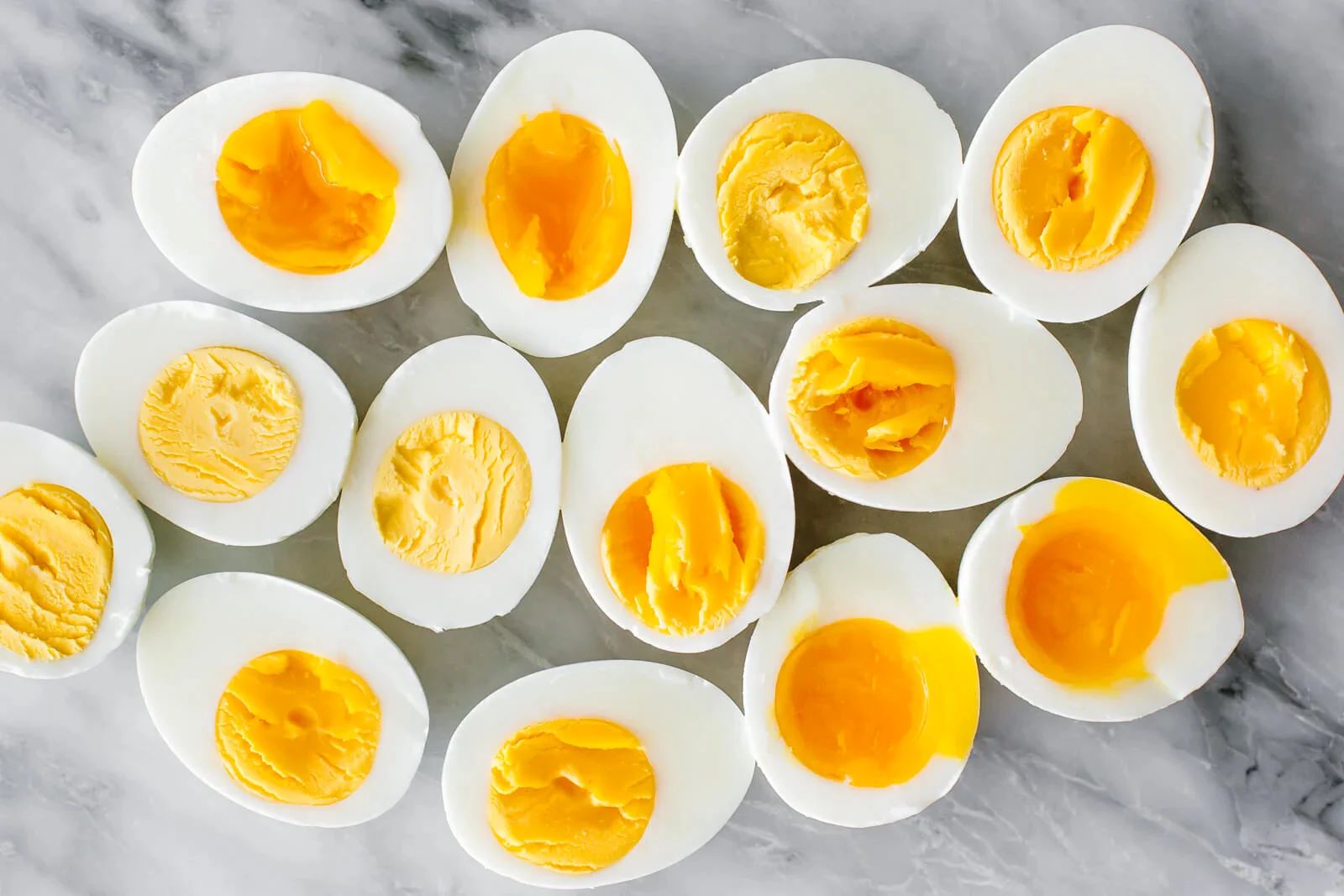
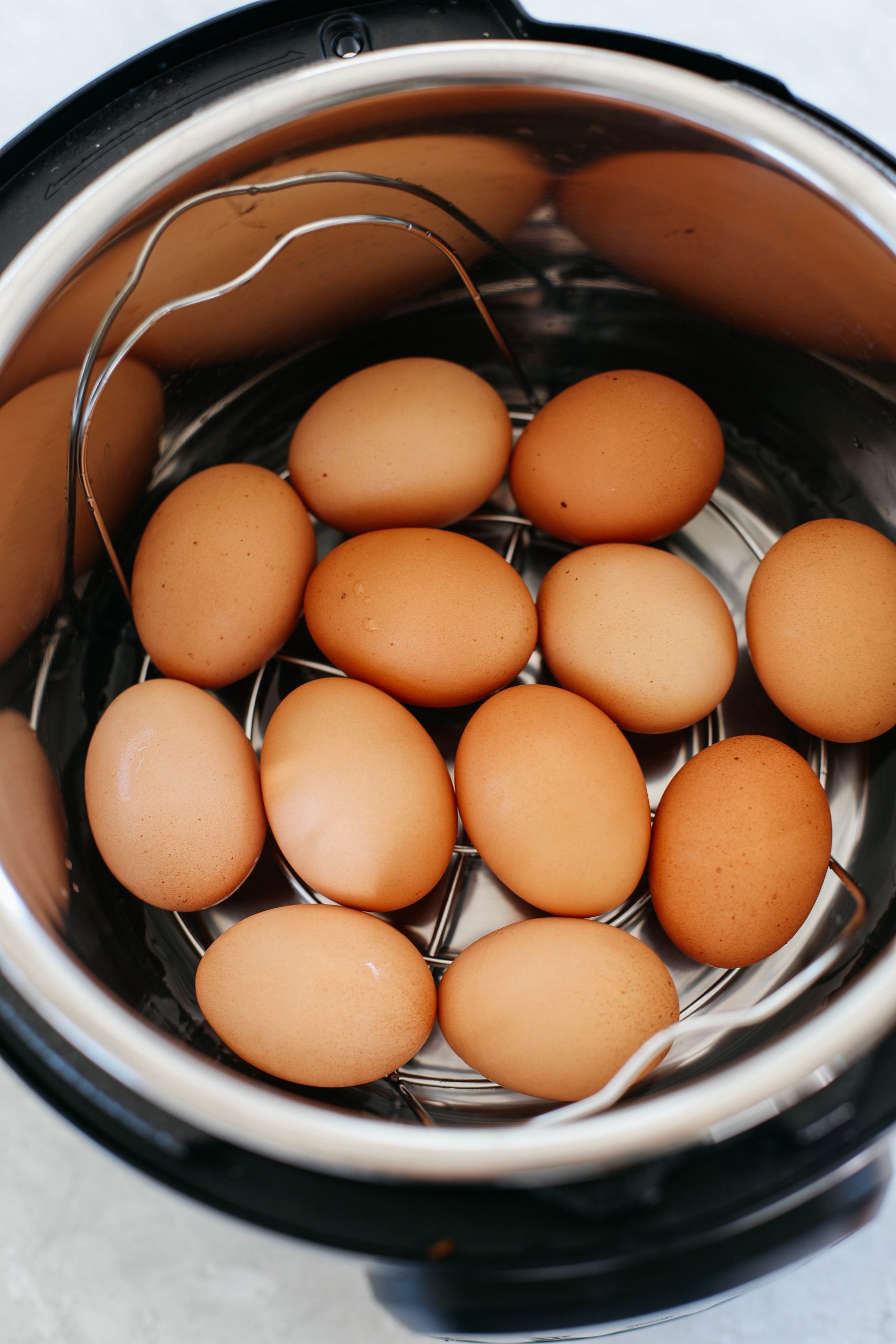
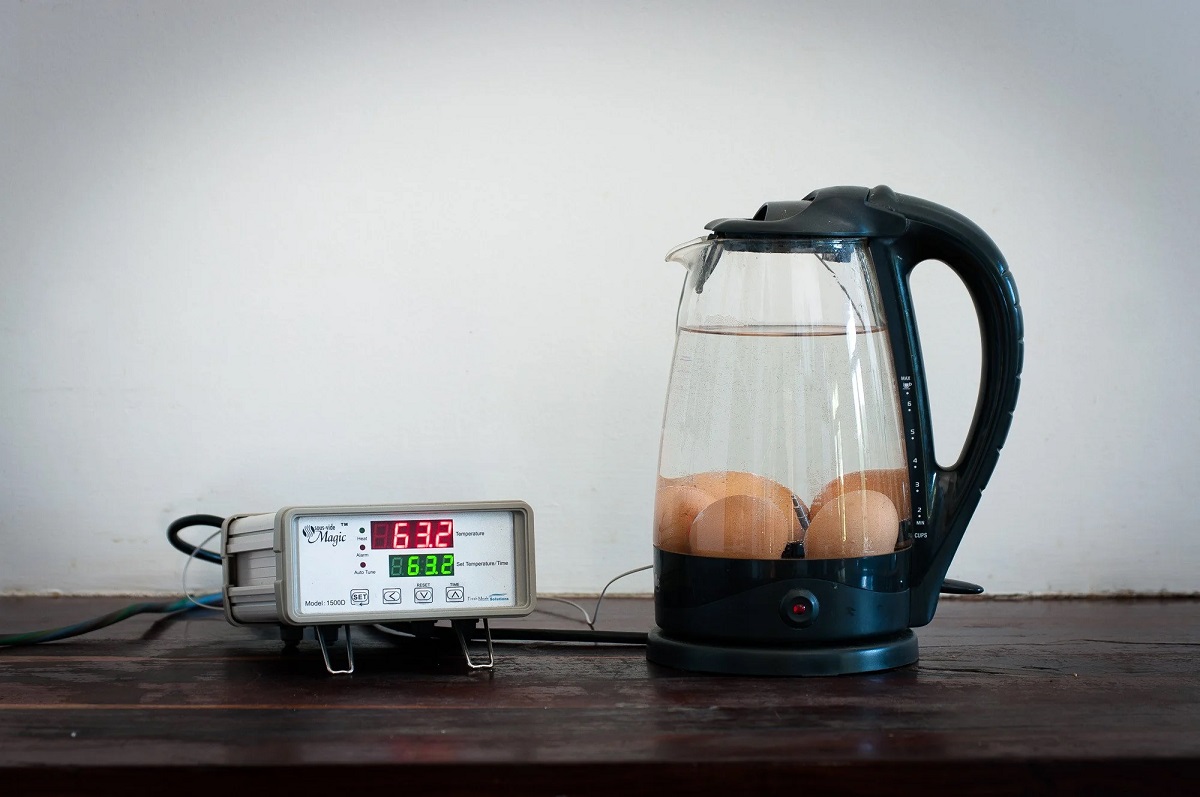
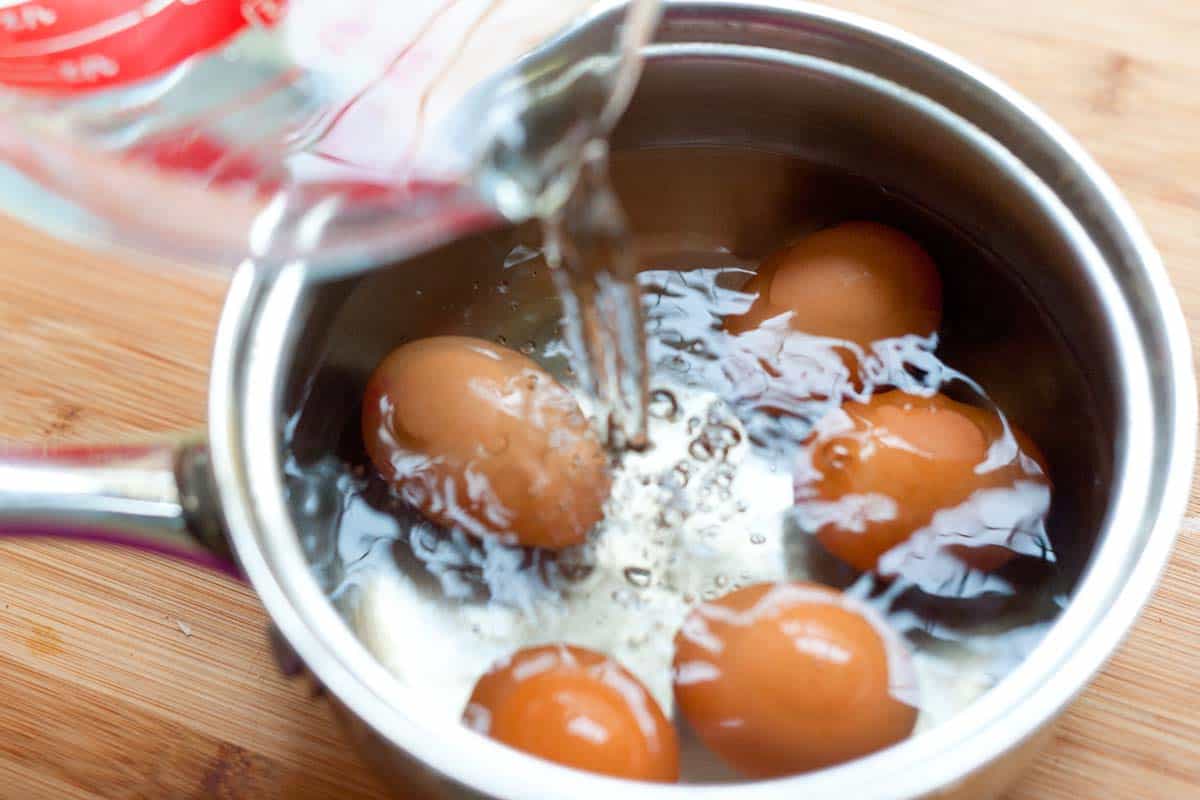
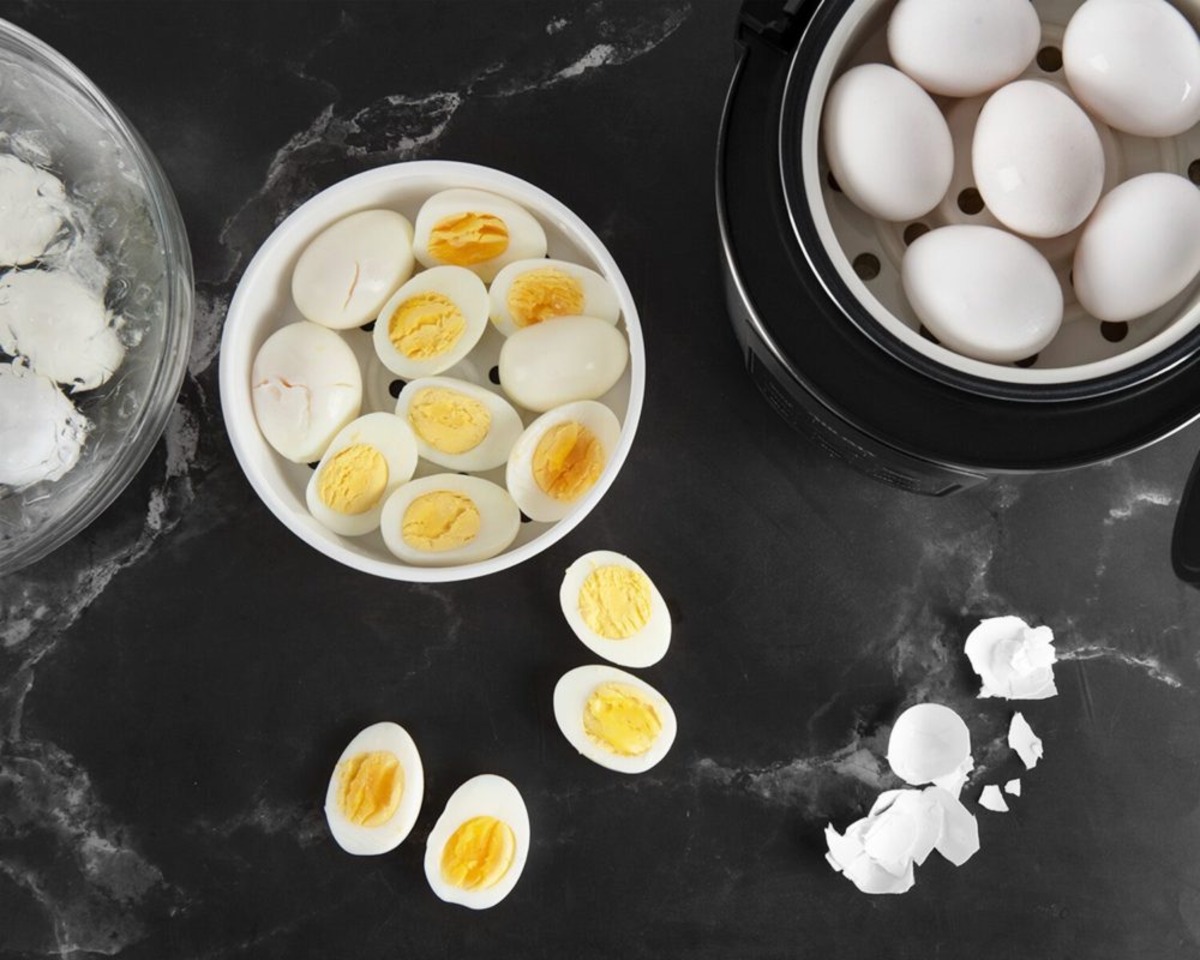
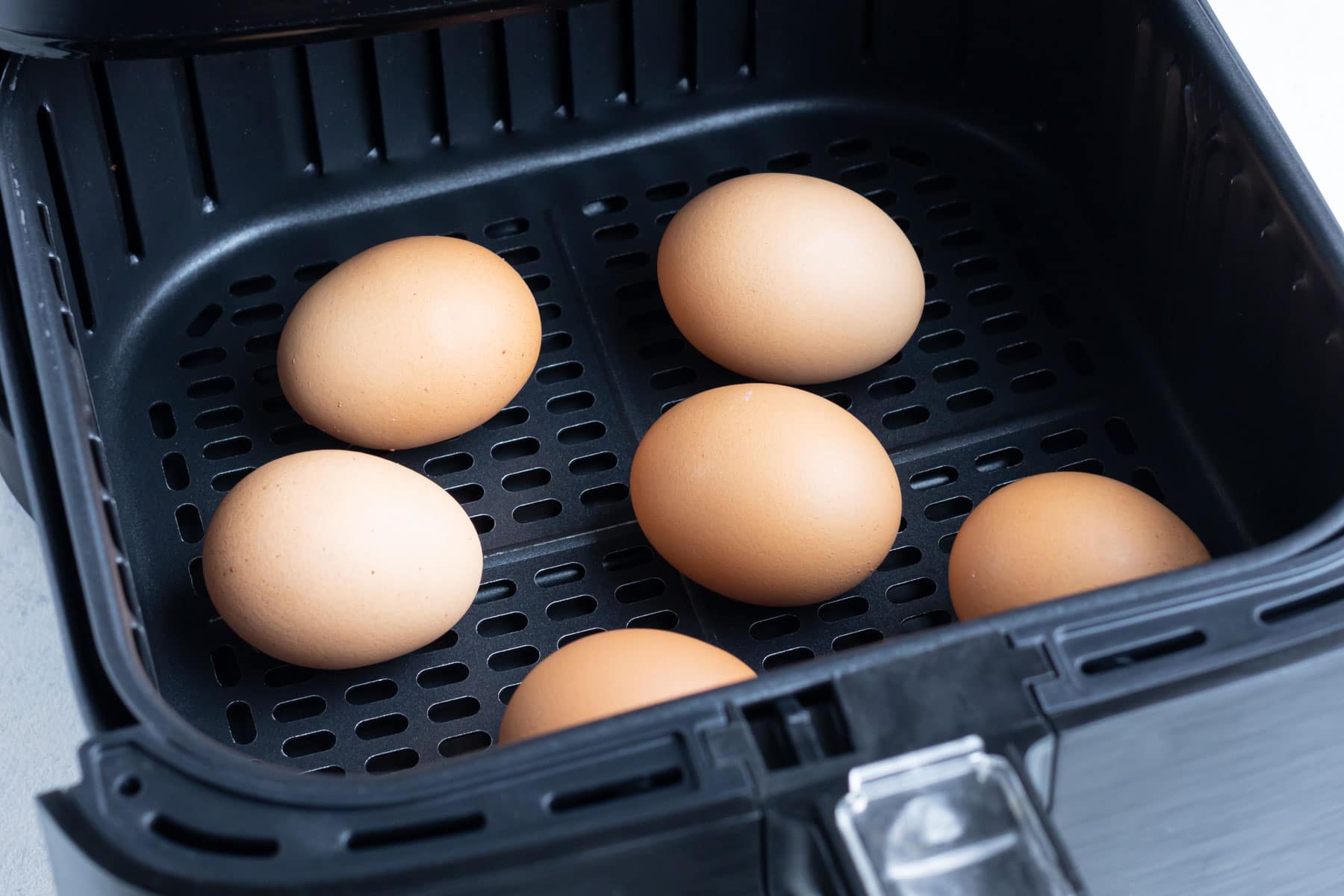
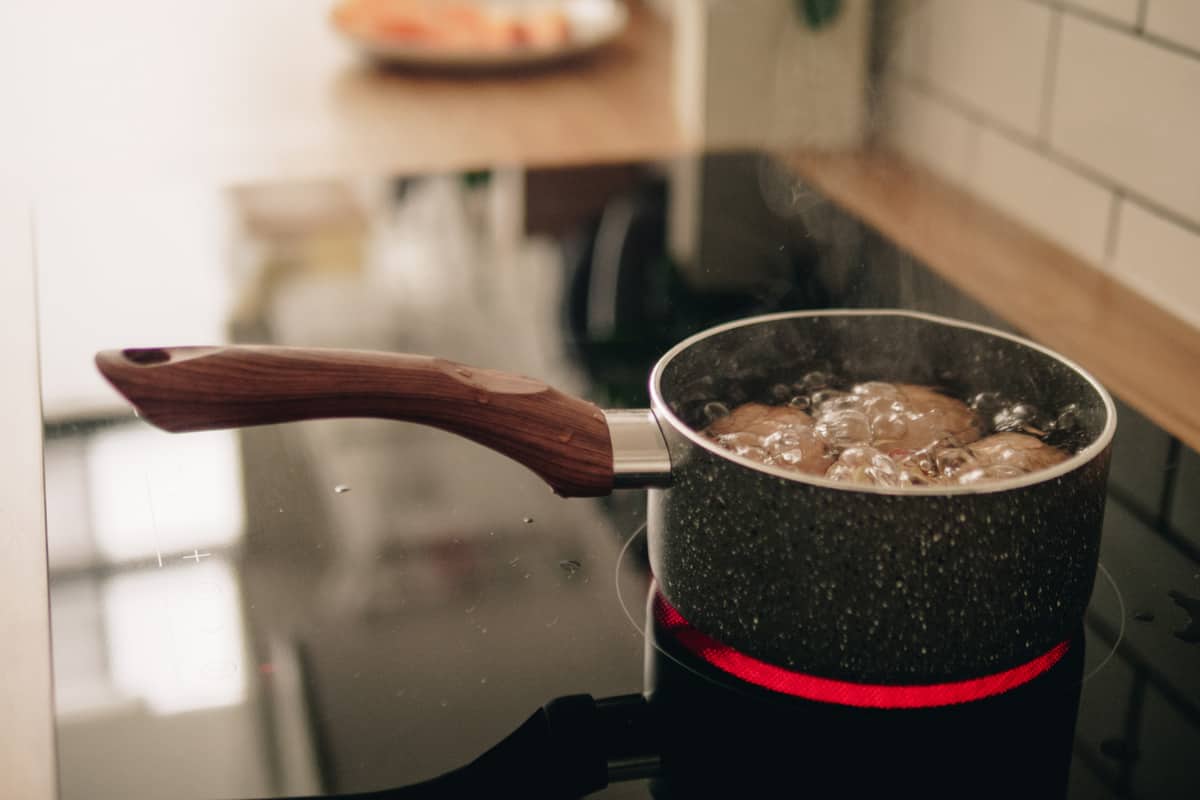

0 thoughts on “How To Store Hard-Boiled Eggs”